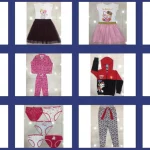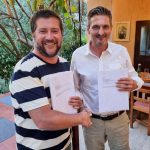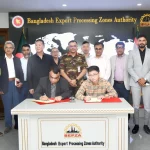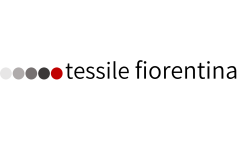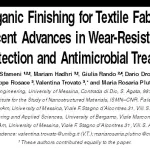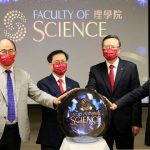Jeanologia, based in Valencia, Spain, operates under a “3E” motto, emphasizing ecology, efficiency and ethics. Silla previously had estimated that about 15 percent of global denim is produced using Jeanologia technology.
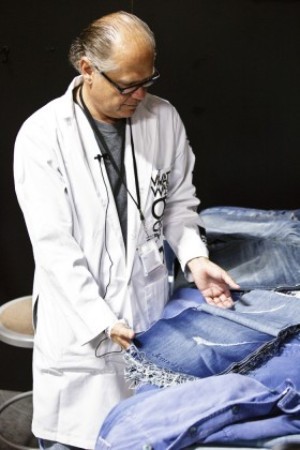 Jeanologia was originally started as an R&D centre for denim finishes in 1993. Today, it has established as a research & development centre that discovers creates & sells industrial solutions (technology & know-how) in garment finishing. Mainly based in Valencia, Spain, Jeanologia has a global presence with strategically located offices and representation around the world which provides goods and services to clients in 45 countries across 5 continents.
Jeanologia was originally started as an R&D centre for denim finishes in 1993. Today, it has established as a research & development centre that discovers creates & sells industrial solutions (technology & know-how) in garment finishing. Mainly based in Valencia, Spain, Jeanologia has a global presence with strategically located offices and representation around the world which provides goods and services to clients in 45 countries across 5 continents.
Under the Jeanologia umbrella, their global brand, GFK, has become well-known for its state-of -the art garment finishing equipment which is produced in-house in Barcelona. Jeanologia has become the market leader in Laser technology now owning 85% of the world’s laser production in the jeanswear sector.
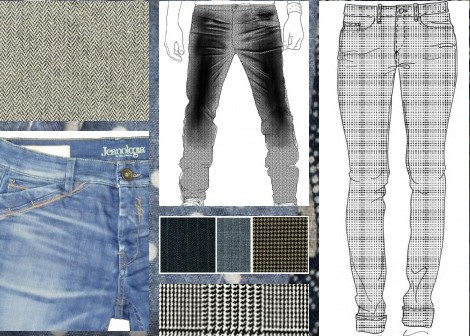
Our laser technology is more than create a nice & natural used. Now we are presenting the new generation of laser structures. We have developed laser designs from textile structures which makes possible to create an optical illusion: we are marking total laser designs with different pattern & structures that make the fabric look totally different (as another fabric).
Also we are marking photo-laser designs from real garments & we get an optical illusion effect very different. All these new developments make us to have an open mind compared with the traditional denim processes & traditional denim look.
GFK Marcatex 3e
Perfect to those who are on their first spteps into the laser world. If you are a jeans or knits atelier and your needs don´t go beyond 1.500 garments per day, GFK MARCATEX is your laser Its compact engineering and its design for series combination to obtain an efficient and an economical system.
Besides laser machines, Jeanologia also has a wide range of other finishing technologies for garments which are aimed at significantly saving water, chemicals and energy. Jeanologia equipment is very widely used in many successful laundries which work for the most important brands throughout the world.
GFK Twin HS : Production at the speed of Light
GFK Twin has been designed for large productions of 5 pocket jeans. It takes just one operator per working shift to process up to 4.000 jeans* controlled by an artificial vision camera Equipped with 2 laser resonators of maximum power, GFK Twin is the most productive and fastest laser in the market. The dual burning system and an exclusive digital power control allow working on both jean legs at the same time.
EIM from Jeanologia
For several years, Jeanologia has focused its efforts on providing the industry with resources to help minimize the environmental impact in the textile garment finishing industry. “Sustainability is our life style and today Jeanologia is globally known for its expertise in developing new technologies and processes for green and sustainable finishing in the denim and casual wear markets.
 With the aim of knowing where we are, being able to optimize finishing processes efficiently and monitoring the result of the action taken, for this reason Jeanologia launched EIM:The first Environmental Impact Measuring software specifically for the garment finishing industry created to provide the laundries and garment finishers with a tool that helps them to build more sustainable processes.
With the aim of knowing where we are, being able to optimize finishing processes efficiently and monitoring the result of the action taken, for this reason Jeanologia launched EIM:The first Environmental Impact Measuring software specifically for the garment finishing industry created to provide the laundries and garment finishers with a tool that helps them to build more sustainable processes.
It assesses the environmental impact of the garment finishing processes. It provides an understanding of the Environmental impact in the following individual categories:
EIM provides valuable information to determine if your garment finishing efforts lead to the desired objective. The future of our industry is Ethics – Ecology – Efficiency. And EIM is the tool to achieve that objective.
EIM, the first Environmental Impact Measuring software specifically for the garment finishing industry created to provide the laundries and garment finishers with a tool that helps them to build more sustainable processes.

G2 Plus : Washed by the atmosphere
G2 PLUS is the biggest & more powerful ozone machine. It’s the safest and most ecological way to wash the garments achieving the best reproducibility in the market. The patented technology offers best productivity with minimum electric consumption. By taking the air of the environment the generator obtains ozone and active oxygen to process the garments. A double neutralization system and safety sensors prevent any leakage of ozone, even when the process has ended.
Ozone Technology from Jeanologia
– Ageing for true vintage looks
– Pigment looks without the pigments
– Casting
– Cleaning
– Bleaching without the bleach
– Eliminates the need for PP spraying
– Blacks & grays fade naturally without turning brown
Savings – Energy : 51%; Water : 50%; Chemicals : 57%
Jeans Go Green (With Lasers)
High-fashion. High-tech, It’s all the same at Jeanologia. The denim-finishing company Jeanologia has made the worn-in look a little more eco-friendly and a lot more tech-savvy. Jeanologia, which has amassed a following in 43 countries over five continents, believes that there’s an easy way to save the planet without scrimping on style – and it starts with lasers.
Carmen Silla, who leads digital marketing strategy and communications with Jeanologia, describes the experts behind her company as “denim-mad scientists.” Through a series of technological developments, the brand has perfected methods to finish garments professionally and fashionably, without sparking many of the environmental concerns associated with processes like sandblasting. Their two main solutions; laser and ozone technology.
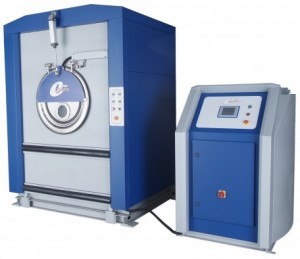
E-Soft Technology from Jeanologia : Environmental cost saving technology for softening garments
E-Soft revolutionizes the process of softening and control of shrinkage of the garments. The technology of nanobubbles allows you to save up to 80% of softening product and up to 98% of process water from over 100 garments. The Electroflow reactor generates the nano bubbles and can be attached to an existent rotating tumbler. Savings – Energy : 79%; Water : 98%; Softner : 80%
“Jeanologia has looked deep into the leal impact of our industry, on the environment, to find ethical solutions in finishing,” Silla says. The company’s GFK 3e laser finishing, for example, can replicate natural wear patterns in denim while reducing energy flow and boosting productivity overall. In general, Jeanologia’s laser technology can finish about 100 pieces per hour, compared to about 60 per hour with potassium-permanganate spray methods, 30 per hour with sandblasting and just 10 per hour with manual scrapping.
Jeanologia’s new technology doesn’t limit its design scope. According to Silla, “[you can) compare a pair of jeans to an art canvas — with a raw jean, you can go as far as your imagination will reach.” Once Jeanologia defines a design (whiskers, chevrons, special textures, a unique print), it’s up to laser finishing to handle the rest. The company uses four lasers that each handle separate functions, depending on the volume and type of garments needed.
Beyond lasers, Jeanologia focuses its efforts on ozone technology. The company’s eco-friendly laundering method, known as G2, uses only ozone and oxygen to wash jeans and knits, providing a vintage finish without relying on water or chemicals. It saves 62 percent in energy expenditures overall, according to Silla.
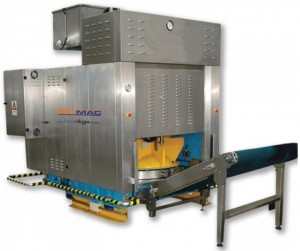
Big Mac from Jeanologia : BigMac is Jeanologia´s water extracting technology.
This is the fastest and the highest productivity water stractor in the market: 60 garments every 4 minutes, minimum 21.600 garments per day (24 hours) in continuous process, 1 person per shift. Control by computer software Water tank High pressure extraction membrane Hydraulic pressure pump Conveyor belt for continuous production
Expand that type of technology over the global denim market, and you just might come across real change, she notes. “The annual production of jeans worldwide is 5 billion units, and each manufactured jean takes 70 liters of water,” Silla says. Couple that with 1.5 kilowatt-hours of energy and 150 grams of chemicals per garment, and that quickly adds up to 350 million liters of water, 7.5 billion kilowatt-hours in energy use and 750,000 tons of chemicals.
Beyond its green finishing work, Jeanologia focuses on software to help keep the denim business conscious of its impact. “We believe the starting point for creating efficient, ethical and ecological technology is monitoring the costs of water, chemicals and energy in our industry.” says Silla.The company prides itself on having launched EIM, a customized environmental impact measuring software, specifically designed to help laundries, garment finishers and other fashion businesses build more sustainable practices. The software focuses on four pedestals — water consumption, energy consumption, chemical use and worker health — to determine how well a given company is helping reduce the environmental toll of the garment lifecycle.
Globally, Jeanologia has cast a wide range of influence. Although its presence is larger in countries like Colombia, Mexico, China and India, the company has found a niche in the L.A. denim market, with brands such as J Brand, 7 For All Mankind, True Religion, Hudson Jeans, and Rich & Skinny taking note of the high-tech processing options.
Jeanologia is also grabbing more business in the retail sector. Big chains such as Gap, Uniqlo and Zara have used the company’s methods and technology, and so have global denim pillars such as Levi Strauss & Co., Polo Jeans, Diesel and Abercrombie & Fitch.
If you ask Silla, some of the most interesting developments are yet to come at Jeanologia. “We’re preparing to launch a new technology that will revolutionize the textile industry,” she says. “It will [help] save around 98 percent of the water, 80 percent of the chemicals and 79 percent of the energy of current processes.”
Beyond that, the eco-friendly company is going more user- friendly. “We’re launching new software that simplifies the design technology of the GFK laser — and integrates production, creativity and design,” Silla notes. Users can expect an easy-to-navigate “click and drag” system that can customize to the shape and size of each garment, allowing a seamless design process. Even if designers work thousands of miles apart, they can communicate quickly and clearly with the new technology.
The company, in its quest to better “the science of finishing,” seems to have plenty more high-tech tricks in its pocket. Retailers might have to wait to see what those are, but the planet-friendly intent will still be there. “The Jeanologia philosophy is based on ecology, ethics and an efficient way of work.” Silla says. “For the past 15 plus years, it’s been our mission to enhance industrial garment finishing.. .through technology and know-how.”
Co-Branding/Colaborations
Jeanologia is working and collaborating with other companies, brands, designers, weavers … which they identify have common values. “We believe in the synergy between colleagues, as a way to advance and enrich each other. This collaboration keeps us always active and looking for new technological applications and new creative challenges for the textile industry.” As Enrique Silla, President of Jeanologia, says: “The collaboration and co-branding allow us to put art and technology to the service of Denim, on the expectation of inspiring designers, brands and retailers all over the world. Creative activity is expressed in turn through magnificent partnerships where we share our technology and know-how for the benefit of our colleagues collaborators. Projects are unique in that we work hard in that, and we feel proud of the final works. Because in them lies our essence: to ensure technological and creative support to the textile industry.”
Jeanologia is currently having collaborations with :
- Marithe et François Girbaud
- Cotton Incorporated
- Candiani
- Invista
- Kingpins
- Vicunha
Contact details :
Edificio Grupo Eurotrend
Ronda Guglielmo Marconi 12, Parque Tecnológico 46980, Paterna -Valencia -Spain
Tel +34 96 289 10 92 Fax +34 96 393 12 95 General info@jeanologia.com





